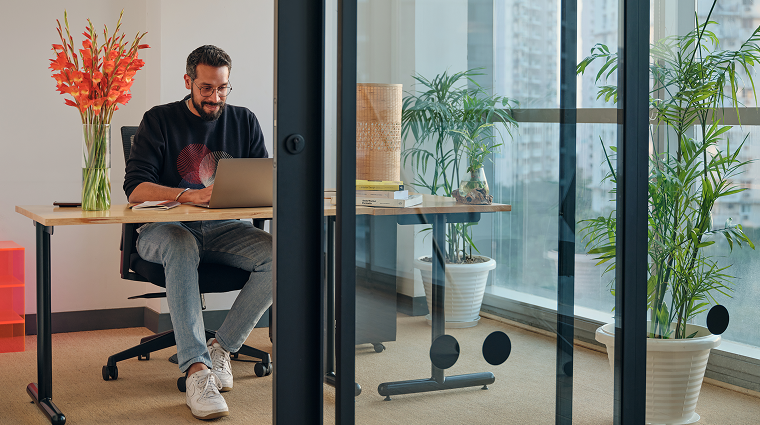CULTURE & COMMUNITY
What is Work-Life Balance and Its Importance

Learn the importance of work-life balance for a healthy, productive life. Explore practical tips to maintain harmony between work and personal life.
A healthy work-life balance creates harmony between your personal and professional responsibilities. It involves managing time, energy, and focus in a way that allows you to thrive both at work and in your personal life. Achieving this balance is crucial for maintaining a healthy lifestyle, improving well-being, and boosting overall productivity. In today’s fast-paced world, understanding the importance of a balanced approach to work and life is more vital than ever.
What is work-life balance?
A productive and healthy work environment is largely dependent on work-life balance. A person who successfully strikes this balance spends the same amount of time on personal and professional activities without feeling overburdened or stressed. Gaining knowledge about the significance of striking a balance between your personal and professional lives could help you overcome negative feelings and create better time management plans.
Also read: What is an activity-based workspace and how it helps in maximising productivity
Importance of work-life balance
To understand the importance of work-life balance, you could start by considering how to separate your personal and professional lives. If you are satisfied with the amount of time you devote to each, you may have a good work-life balance. People with this balance are more likely to maintain their mental health and deal with less stress at work. This can help you meet your business goals and cultivate more positive personal relationships.
Ultimately, living a balanced life is frequently associated with being healthier. More life satisfaction and general well-being result from striking a better balance between your personal and professional lives. Being able to schedule time for the things that are most important to you helps you feel successful and satisfied.
Ways to maintain a healthy work-life balance
- Plan ahead of your schedule
Make plans to blend work and leisure with social or physical activities. If you have numerous virtual meetings scheduled back to back, try taking them while walking. You could even take a call outside or invite a friend to work with you.
- Re-evaluate your work
If your current employment feels split up from your passions and hobbies, think about how you may combine your work with activities that give you a feeling of purpose and joy. While work cannot meet all of your needs, it should provide moments of accomplishment and satisfaction.
- Take time off
With ‘work from home’, when you're at home all the time, you tend to try to work through a fever that would normally keep you away from the workplace. Taking time off using your leaves, including sick leaves, personal time, and holidays, is essential for maintaining your health.
- Practice mindfulness
Mindfulness makes imbalance difficult to ignore. Techniques such as meditation or breath awareness help you become more aware of your emotions and physical sensations. Paying attention to these feelings teaches you how to recognise when you are repressing a need.
- Set boundaries
It is critical to finish your work on time for your workday, even if you work from home. Reinforce this boundary by turning off work-related gadgets, closing your office, or organising post-work activities. For example, if your work hours are 9 a.m. to 5 p.m., make it clear that you will not be accessible for meetings or business-related duties after those hours.
Also read: How to improve concentration & stay focused while working at a coworking office space
- Make use of technology to unplug
There are many programs and apps that block distracting websites during the workday and limit work-related tools after office hours. Use a different device for work or keep a work-free device to allow for complete disengagement during your non-working hours.
- Practise time management
Calendar apps and to-do lists are great tools for tracking how you spend your time. You may go over a normal week and see if there are any ways you can improve your time management. You may be able to save time by shopping online more frequently or working from home a few days a week to lessen your commute. You may see if any meetings or responsibilities can be completed via phone, video call, or email rather than in person.
- Block time for different tasks
Set up distinct time intervals for certain tasks, such as checking and responding to messages, attending meetings, and addressing intellectually demanding work. Align these responsibilities with your most productive hours.
- Work at a quiet space
Creating a designated quiet zone at your company can help your team be productive, happy, and healthy. Employees can utilise the space to ponder, meditate, or simply relax away from the hustle and bustle of the office. A quiet environment can allow employees to gather their thoughts, focus, and complete their work.
Also read: How to find the right coworking space for you and your team
- Consult a coach or therapist
Working with a professional can be quite beneficial if you are feeling overwhelmed, stuck, or unsure where to begin to disengage. A coach or counsellor can ask the proper questions to help you determine which adjustments will have the greatest impact and how to get started.
Maintaining a healthy work-life balance is essential for long-term success and well-being. By setting boundaries, prioritising tasks, and taking care of mental health, you can enjoy a more fulfilling life. For businesses, promoting this balance can lead to happier, more engaged employees.
WeWork’s flexible workspaces provide the perfect environment to support work-life balance, offering amenities like private offices, wellness rooms, comfortable spaces, and the flexibility to manage your time effectively. This combination helps individuals and businesses foster a balanced, productive work culture.
FAQs
1. What is work-life balance?
Work-life balance refers to the ability to divide time and energy between work responsibilities and personal activities in a way that maintains an individual’s health and well-being.
2. Why is work-life balance important?
Achieving a work-life balance helps reduce stress, prevent burnout, and improve both personal satisfaction and work performance. Hence, it is important to strike a balance between work and personal life.
3. How to improve work-life balance?
You can improve work-life balance by setting clear boundaries, prioritising important tasks, and making time for personal interests and relaxation.
4. What are the signs of an unhealthy work-life balance?
There are numerous signs like constant stress, fatigue, lack of personal time, decreased productivity, and strained relationships. If an individual experiences any of these symptoms, their work-life is probably unhealthy.
5. How does work-life balance affect mental health?
A poor work-life balance can lead to stress, anxiety, and burnout, while a good balance supports better mental health and overall well-being.
Related Blogs:

CULTURE & COMMUNITY
Many professionals now deal with stress regularly, with tight deadlines and long work hours in a stressful workplace. In such a demanding and fast-paced work culture, mindfulness can be an effective strategy.

CULTURE & COMMUNITY
A buddy system involves assigning a new employee a coworker buddy. The buddy, who is an experienced worker, guides the new employee for the first weeks or months of work.

